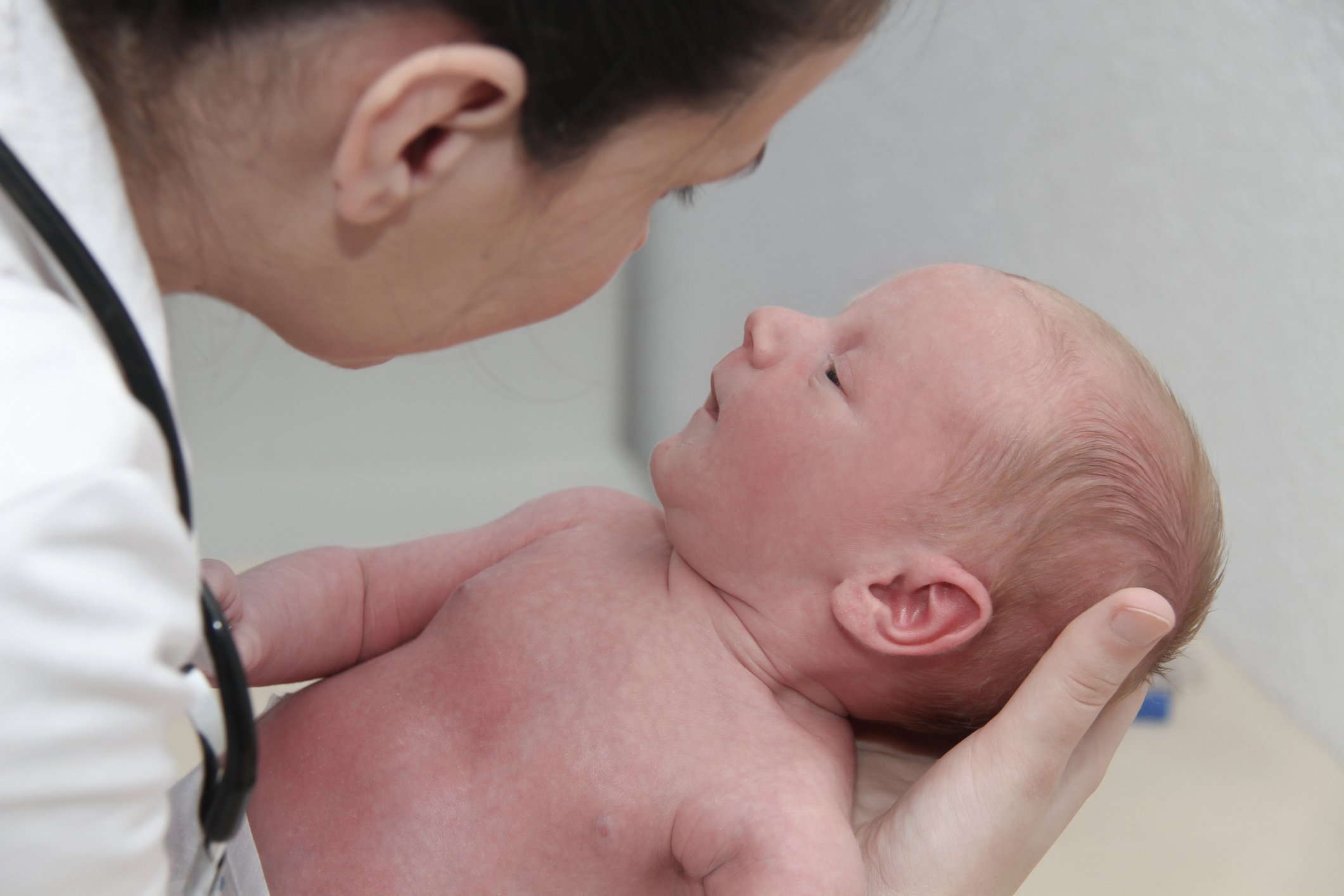Prader-Willi Syndrome - symptoms, diagnosis and management

Prader-Willi Sundrome was first described by Swiss Doctors Prof Prader, Dr Labhart and Dr Willi in 1956 and this rare genetic disorder affects about one in 30,000 children.
About 70% of cases are caused by the absence of certain information on chromosome 15 and this is inherited from the father. It’s believed that a defective chromosome 15 disrupts the normal development and function of the hypothalamus - the part of the brain which has many functions including helping to regulate appetite and producing hormones.
The earliest sign is usually “neonatal hypotona” in other words a newborn child which presents with floppiness and weak muscles, a weak cry, poor reflexes and feeding/breathing problems. There may also be facial features including:
- A narrow bridge of the nose
- A thin upper lip with downturned mouth
- Almond shaped eyes
In young Prader-Willi Syndrome children there may be evidence of abnormalities in the genitalia including a small penis and one or both undescended testes in boys. In later life this can lead to low levels of testosterone (See my previous blog post on hypogonadism) and the subsequent possibilities of osteoporosis and fractures.
As PWS children grow, major motor milestones are likely to be delayed and between the ages of one and four they usually show symptoms of an excessive desire for food with the subsequent risk of obesity.
These children are usually shorter than their peers and any growth spurt that naturally happens during puberty is delayed due to lack of growth hormone. They will continue to demonstrate low muscle tone and may also have a slow metabolism which increases their risk of becoming obese.
At puberty it is common for secondary sexual characteristics like breast development, the onset of periods, facial hair growth or deeper voice pitch to be delayed or incomplete.
Trouble remembering, concentrating, making decisions or learning new things is not unusual and about 5% of individuals have IQ’s in the low normal range.
Obesity in PWS patients can lead to complications in adolescents and adults e.g. sleep apnoea and type 2 diabetes. In fact type 2 diabetes is reported in about 25% of patients – usually at around the age of 20. Because of this it is recommended that children and adolescents with a BMI higher than the 95th percentile should be annually checked for type 2 diabetes.
Obesity and its complications can lead to shortened life expectancy with these specific disorders being accountable:
- type 2 diabetes (25%)
- recurrent respiratory infections (50%)
- high rates of fractures (29%)
- leg ulceration (22% of adults)
- sleep disorders (20%).
Diagnosis
An initial diagnosis of Prader-Willi Syndrome is usually made using a checklist (see here). This is then confirmed via genetic testing.
Management
Although there is as yet no cure, healthcare professionals such as pediatricians,endocrinologists, speech therapists and dietitians will help you manage any of the syndrome’s problems your child may be experiencing - and a key worker will be assigned to you as an ongoing point of contact.
There is also a very active British Support group called the Prader-Willi Syndrome Association UK. Click here to visit their website which contains a large amount of helpful information.
Although every effort is made to ensure that all health advice on this website is accurate and up to date it is for information purposes and should not replace a visit to your doctor or health care professional.
As the advice is general in nature rather than specific to individuals Dr Vanderpump cannot accept any liability for actions arising from its use nor can he be held responsible for the content of any pages referenced by an external link










